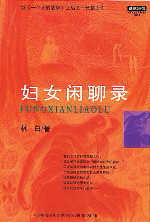 In this town called Water Mill, a beautiful actress was born in the 1960s. Her picture appeared on posters and became an icon. She starred in two glamorous films, was once received by the Premier, and was granted government permission to travel abroad to visit an ancient civilization. In short, she was crowned with every possible glory. Later on, though, she was slandered and died, her life becoming the stuff of a tragedy that hovers over Water Mill to this day.
In this town called Water Mill, a beautiful actress was born in the 1960s. Her picture appeared on posters and became an icon. She starred in two glamorous films, was once received by the Premier, and was granted government permission to travel abroad to visit an ancient civilization. In short, she was crowned with every possible glory. Later on, though, she was slandered and died, her life becoming the stuff of a tragedy that hovers over Water Mill to this day.
In Water Mill, anyone over the age of 50 who had seen Zhu Liang in person would agree that she was far more beautiful than this actress. The woman who lived in the attic of the old red mansion said that if the actress shone like one star, Zhu Liang shone like 10.
Her words are no doubt exaggerated.
Water Mill lies at the same latitude as my hometown―the 23rd parallel. But whereas the water of my hometown river runs clear, the river of Water Mill is always filled with rusty silt. It's a wild river that runs all the way to Viet Nam, where it becomes the Mekong.
 Lin's Narration Revolution
Lin's Narration Revolution
The Records of Women's Gossipwas written in a whole new style in which a countrywoman called Muzhen tells her own life in her own language. Through the gossip, readers can get to know the life of country folk: how they play cards to kill their time, the Ernai (Chinese meaning the lover of a married man) life of some country girls. Here "gossip" is a keyword. It means the character in the story who talks just as they do in their real life. All that they are talking about is original and random. The speaker herself does not have any particular aims in gossiping. So Lin did not exploit any literature methods to make the novel more artistic. On the contrary, it looks quite natural, without any slightest literary decoration.
Lin writes in the postscript of the book,The Records of Women's Gossipis the simplest work I have ever written. It attaches itself to reality in an extremely oral way. You can find pains and frustrations in the story everyone is experiencing… what I have to do in the first place is to remove myself from the written paper and find back briskly from life…The Records of Women's Gossiphas changed my life a great deal and helped me taste the happiness in life.”
Critics considerThe Records of Women's Gossipa revolution in narration. Although there are numerous films and TV plays and news reports about life in the countryside, the information tends to be something a bit superficial. Real life conditions remain strange to most urban Chinese. However,The Records of Women's Gossipspeaks to the silent majority, expressing stories at ease. It unfolds a different life that is just so real that everyone understands the feeling of life and can hold it in his or her heart.
Author: Lywet
